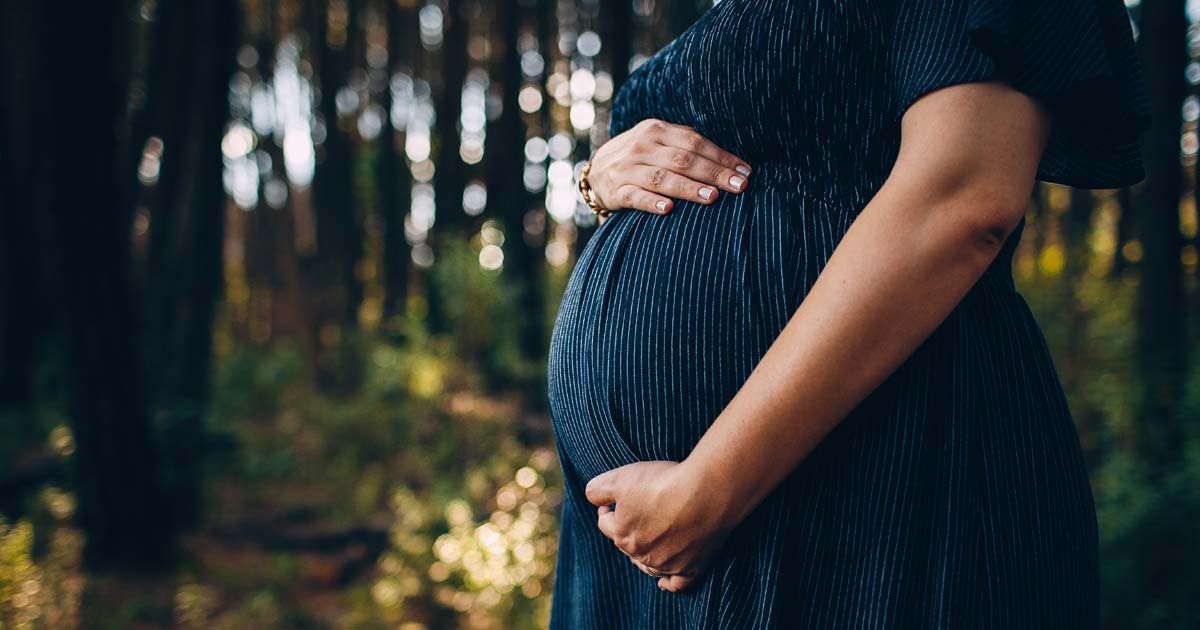There's undoubtedly been lots of talk surrounding the COVID-19 vaccine in recent months, especially as it relates to pregnancy. Recently, Dr. Mike Tsimis, a board-certified maternal-fetal medicine physician with Spectrum Health, shared current knowledge on the topic, offered advice for patients, dispelled myths and more.
According to research published by the American Journal of Obstetrics and Gynecology, the Pfizer/BioNTech and Moderna COVID-19 vaccines are effective in pregnant and lactating women, who can pass protective antibodies to newborns.
"The biggest thing to realize is when we're talking about pregnancy and COVID infection, there are certain unique physiologic changes that a pregnant mother undergoes, that make her potentially more susceptible to a worsening presentation of COVID," said Dr. Tsimis. "We've seen through multiple studies that the COVID infection in a pregnancy usually can lead to worse outcomes. There seems to be potentially even a threefold increased risk in ICU admissions alone from the infection."
When looking at getting vaccinated while pregnant, Dr. Tsimis says there's plenty to consider—from community risk to exposure and more.
"It's the risk of getting the infection while being pregnant, balanced by the vaccine, looking at the safety and how effective it is," said Dr. Tsimis.
So, how does it all work?
Dr. Tsimis explains that when it comes to specifically the Pfizer and Moderna mRNA-based vaccines, they're not live viruses, but simply are mRNA—genetic material that is injected by a lipid nanoparticle, which is essentially a way to bring relatively fragile genetic material into the body. The cells of the body read that material and are able to produce proteins to allow the body to get accustomed to the potential immune response to lessen not only the severity, but also any manifestations of the disease.
"Realize that when we're talking about mRNA vaccines, they enter a cell, but they don't enter the core of the cell, the nucleus where all the genetic material lies," Dr. Tsimis explains. "They actually stay on the outside of the nucleus, so that mRNA has no way of incorporating itself into the genetic code that we all have that's unique in our in our nucleus."
Citing the recent American Journal of Obstetrics and Gynecology study, Dr. Tsimis explained how mothers who were vaccinated during their pregnancies actually had a more robust immune response, meaning they created higher levels of protective antibodies to the COVID infection while being pregnant. This is in contrast to gaining the infection itself, where the immune response dwindled over time.
"The study did suggest that the antibodies that are being created during pregnancy did adequately cross not only the umbilical cord, but also crossed to the baby," said Dr. Tsimis. "There is a benefit of getting a vaccine to protect neonates over just having an infection and looking at antibodies over time."
Dr. Tsimis also addressed widespread myths surrounding fertility and the COVID-19 vaccines.
"With respect to fertility, that was categorically and scientifically disproven that there is no link between vaccination and a reduction or change in fertility of any kind," said Dr. Tsimis, noting that he fully recommends a COVID-19 vaccine for pregnancy. "We made it clear that if a mom is potentially going to have high exposure—either from community exposure, the workplace or at home—that if she is pregnant, or thinking about becoming pregnant, that a vaccine is a benefit, because the safety is there, the efficacy is there."
Written by Sarah Suydam, Managing Editor for West Michigan Woman.




